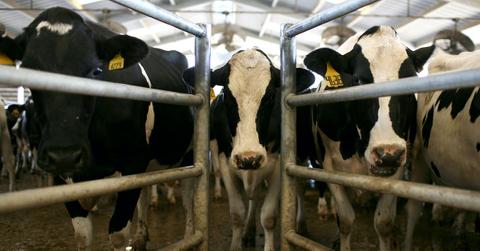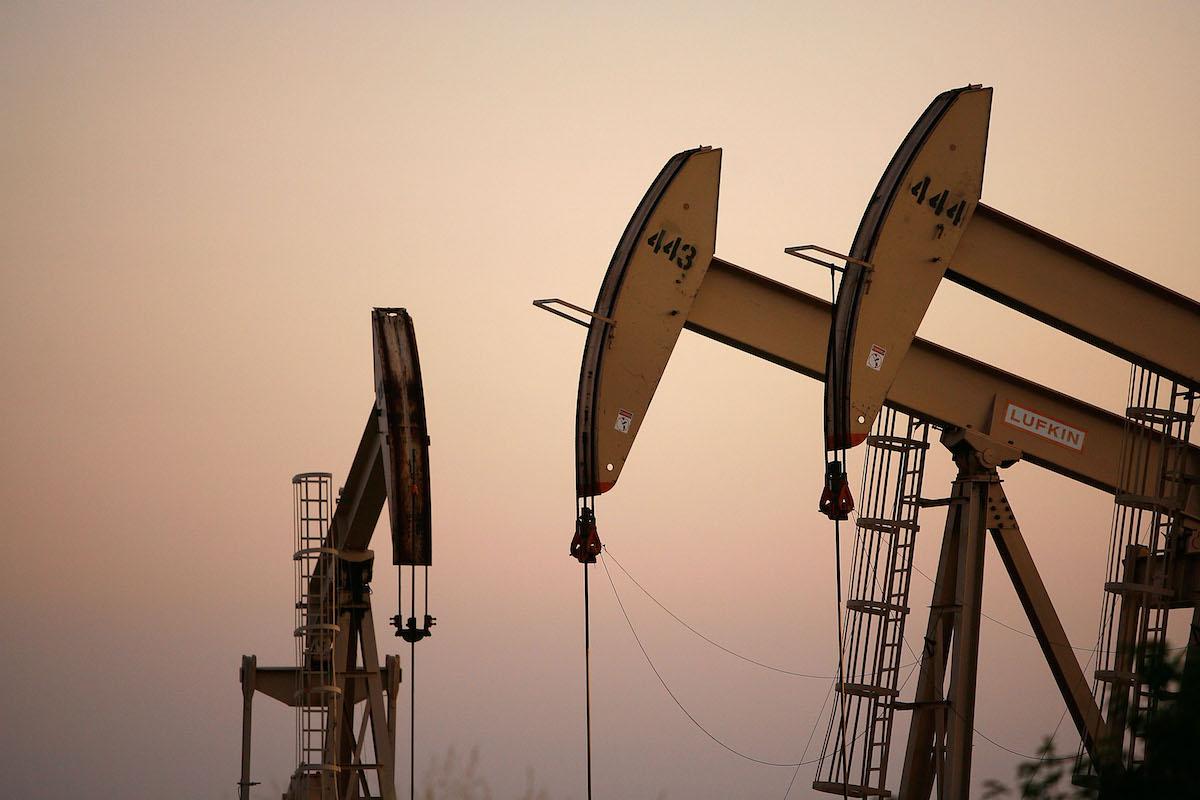Slashing Methane Emissions by 45 Percent Is Crucial to Avoid Climate Catastrophe — and Easy, Says UN Report
Published May 7 2021, 4:57 p.m. ET

Methane is one of the most powerful greenhouse gases destroying our planet — and a new UN report found that simply cutting our methane emissions by 45 percent could massively help the planet avoid climate catastrophe.
So how can we effectively reduce methane emissions across the globe? Keep reading to learn more about the UN’s prediction, and for a few of the tactics we can follow to get to this point and essentially save humanity from being swallowed whole by the mounting climate crisis.

The UN believes reducing methane emissions is key in fighting climate change.
On May 7, 2020, the United Nations Environment Programme (UNEP) and the Climate and Clean Air Coalition (CCAC) published a report titled the “Global Methane Assessment.”
According to the findings of the report, it is possible for us to reduce human-caused methane emissions by up to 45 percent by the end of this decade. If we successfully do so, we could put off almost 0.3 degrees Celsius of global heating by 2045; this would help keep the planet in line with the Paris Climate Agreement’s target of keeping the global temperature rise below 1.5 degrees Celsius this century.
On top of that, the Global Methane Assessment argues that achieving a 45 percent reduction in methane emissions by 2030 would prevent 260,000 premature deaths, 775,000 asthma-related hospital trips, 25 million tonnes of crop losses each year, and more.
“Cutting methane is the strongest lever we have to slow climate change over the next 25 years and complements necessary efforts to reduce carbon dioxide,” Inger Andersen, Executive Director of UNEP, said in a statement. “The benefits to society, economies, and the environment are numerous and far outweigh the cost. We need international cooperation to urgently reduce methane emissions as much as possible this decade.”
How can we reduce methane emissions?
OK, so all that sounds great — but how the heck are we going to actually achieve this?
As noted on page 28 of the report, more than 60 percent of global methane emissions worldwide come from human activities; out of that 60 percent, over 90 percent originate from three sectors: agricultural (40 percent), fossil fuel (35 percent), and waste (20 percent). So basically, we need to reduce activities in those three areas. And it’s actually not as hard as one may think.
Methane in the agriculture industry primarily comes from eating cows.
As for the agricultural sector, the greatest sources of methane emissions is from belching animals, specifically cows being raised for beef and dairy. Therefore, the best way to reduce agricultural methane emissions is to raise and kill less animals, and beef up our diets with plants instead.
On page 117 of the report, authors state that reducing humanity’s consumption of cattle-derived foods (meat and dairy) “through the adoption of either healthy or vegetarian/vegan diets” could make a significant difference in reducing methane emissions.
The U.S. government currently gives about $38 billion in subsidies to animal farmers every year — we need governments to shift these subsidies to plant foods to incentivize people to eat less methane-producing meat and dairy.
We can reduce methane emissions in the fossil fuel industry pretty easily.
To reduce methane emissions in the fossil fuel sector, we need to continue supporting the shift away from dirty energy sources to clean energy sources. Renewable energy like solar, wind, and geothermal all produce far less emissions than coal, oil, and gas. Governments need to ramp up efforts to transition to renewable energy economies, and corporations must embrace renewable energy.
Additionally, the report highlights a few specific ways to reduce methane in the fossil fuel industry, such as: plugging pipeline leaks, no longer venting natural gas during drilling, and capturing gas found in landfills, as reported by AP News.
Landfills and wastewater also produce significant amounts of methane.
The authors of the report assert that we need to improve landfill, sewage, and other waste management to reduce methane emissions.
As they point out, all landfill waste produces methane — including food and other biodegradable landfilled waste. That’s because in a landfill, food is not in the right setting to properly biodegrade.
Therefore, an easy thing humans — especially those in charge of large food businesses — can do to reduce landfill methane emissions is make conscious efforts to waste less food; and whatever food scraps don’t get eaten or are inedible (such as apple cores and banana peels) should be composted, and never thrown in the trash.